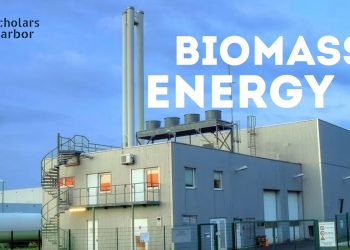Biofuels are a type of renewable energy source that is derived from biomass, which can include plant materials, agricultural waste, and even municipal waste. These materials are converted into a usable fuel source through processes such as fermentation, distillation, and transesterification. The most common types of biofuels are ethanol, made from corn, sugarcane, or other sugar -rich crops, and biodiesel, made from vegetable oils or animal fats.
One of the main benefits of biofuels is that they are considered to be renewable, unlike fossil fuels, which are finite and non-renewable. Biofuels can also be produced domestically, which can help to improve energy security and reduce dependence on imported oil. Additionally, biofuels have the potential to emit fewer greenhouse gases than fossil fuels, making them a potential solution to reducing carbon emissions in the transportation sector.
Evolution of Biofuel
The development of new technologies and approaches to increase efficiency and reduce costs has characterized the evolution of biofuel. Initially, biofuel production mainly relied on food crops, such as corn and sugarcane, as feedstocks. However, this led to concerns about food security and land use.
In recent years, research shifted towards the use of non-food crops, such as algae and switch grass, as well as waste materials, such as agricultural and forestry residues, to produce biofuels. This shift towards nonfood feedstocks has the potential to reduce competition with food crops and decrease land use.
Biofuel production has evolved to be more sustainable, efficient, and cost -effective, but still, it’s facing challenges such as the limitation of land and water resources, high costs of production and feedstock availability. Despite these challenges, biofuels are considered a promising alternative to fossil fuels, with the potential to reduce emissions of greenhouse gases and increase energy security.
Biofuel Production Technologies
Biofuel production technologies refer to the methods and processes used to convert biomass, such as plant materials and waste, into a usable fuel. There are several different biofuel production technologies, each having its own set of benefits and drawbacks. Some of the most common types of biofuels and their corresponding technologies include
1. Fermentation
Fermentation is a biological process used in the production of biofuels, particularly ethanol. It involves the conversion of sugars and starches (such as those found in corn, sugarcane, and other plants) into ethanol and carbon dioxide by microorganisms such as yeast. The ethanol can then be separated from the mixture and used as a biofuel.
2. Transesterification
Transesterification is a chemical process used in the production of biodiesel, a type of biofuel made from vegetable oils or animal fats. The process involves the conversion of triglycerides, which are the main component of fats and oils, into methyl esters (biodiesel) using a catalyst, typically sodium hydroxide or potassium hydroxide.
3. Gasification
Gasification is a process that converts biomass, such as wood, crops, or waste materials, into a gaseous fuel called syngas. This process can be done through thermochemical or biological methods. In thermochemical gasification, the biomass is heated in the absence of oxygen to produce syngas. Biological gasification, on the other hand, involves the use of microorganisms to convert the biomass into syngas.
4. Pyrolysis
Pyrolysis is a thermal process that converts biomass into a liquid biofuel known as bio-oil, through heating in the absence of oxygen. The process of pyrolysis typically involves heating the feedstock, such as wood chips or agricultural waste, to high temperatures in the absence of oxygen. This causes the biomass to break down into a liquid bio-oil and a solid biochar.
5. Algae cultivation
Algae cultivation is a method of biofuel production that involves growing algae in a controlled environment, such as a pond or a bioreactor, and then harvesting and processing the algae to produce biofuels. Algae have the potential to produce high yields of biofuel per unit of land area and can be grown in a variety of environments, including freshwater, saltwater, and even wastewater. They can produce a range of biofuels, including biodiesel, bioethanol, and bio-methane.
6. Liquefaction
Liquefaction technology is a process used to convert solid biomass, such as wood, agricultural waste, or algae, into liquid biofuels. The process involves heating the biomass under high pressure and in the presence of a catalyst to break down the solid material into simpler molecules, such as sugars and fatty acids. These liquids can then be further processed into biofuels like ethanol or biodiesel.
7. Enzyme technology
Enzyme technology is a method used to improve the efficiency and sustainability of biofuel production. Enzymes are biological catalysts that speed up chemical reactions and can be used to break down complex sugars in biomass into simpler sugars, such as glucose and fructose, which can then be fermented into biofuels such as ethanol or butanol.
Conclusion
Biofuel production depends on the specific type of biofuel being produced and the processes used. New technologies are being developed to improve the efficiency and cost-effectiveness of biofuel production, such as algae-based biofuels, cellulosic ethanol, and advanced fermentation processes. However, these technologies are still in the early stages of development and commercialization. Additionally, there are also ongoing challenges with the scalability, sustainability and the feedstock availability of biofuel production.
Cite this Article
| Author: | Scholars Harbor |
| Year: | 2022 |
| Title | Biofuel Production Technologies and its Evolution- Explained |
| Publisher: | Scholars Harbor |
| URL: | https://scholarsharbor.com/biofuel-production-technologies-and-its-evolution-explained/ |










Discussion about this post